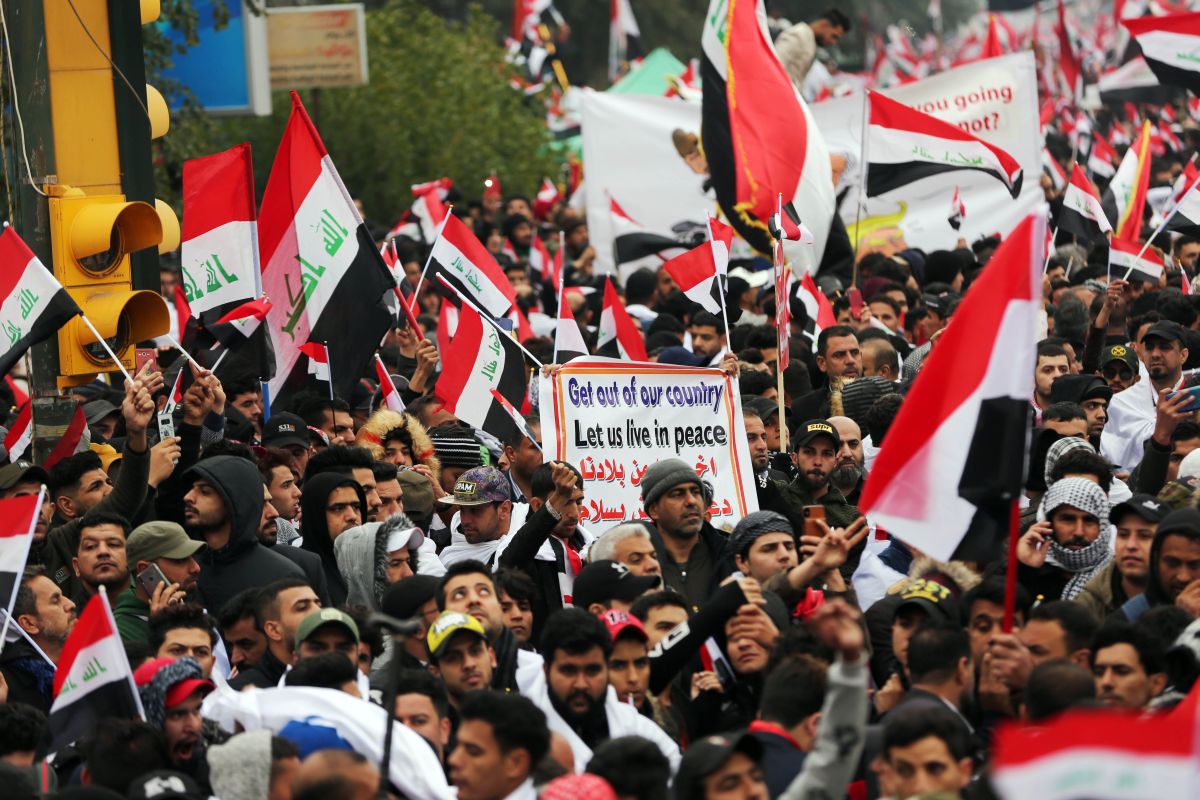Iraqi President Barham Saleh on Saturday named Mohammed Tawfiq Allawi as the new Prime Minister with the task of addressing the massive popular dissatisfaction behind the four months of anti-government protests that have left nearly 500 people dead.
Allawi acknowledged the protesters in a video posted on Twitter after his appointment was announced.
Advertisement
“My power is derived from you. If it were not for your courage and sacrifices then there would have been no changes in the country,” he said.
“You protested for your homeland, and if I am not able to fulfil your demands that I am unworthy of this position.”
The 65-year-old Allawi held the post of Communications Minister in the government of Nouri al-Maliki before quitting in 2012 over what he described as “political interference” by the then-Prime Minister.
“I’m an employee carrying your trust, so do not go back until you get what you want, whether from me or someone else,” he said, encouraging protesters to remain in the streets.
On December 24, Thousands of protesters blocked roads and bridges in southern Iraq and condemned Iranian influence and political leaders who have missed another deadline to agree on a new prime minister.
Anti-government demonstrators burned tyres in major cities across the south, forcing the closure of schools and government buildings.
Earlier, 16 protesters were killed and several others injured after unidentified assailants opened fire on anti-government protesters.
Allawi pledged to pay compensation to the families of the 467 protests “martyrs” and to ensure proper medical care for the more than 9,000 others who have been injured.
The new Prime Minister has 30 days to form a government that must then secure parliamentary approval, said that he would brook no attempts by the various political factions to control his choice of Cabinet ministers.
“If the political blocs try to impose their candidates on me, then I will resign,” Allawi said.
His predecessor, Adel Abdul-Mahdi, resigned on December 1, 2019, in a bid to mollify the protesters, but had remained in a caretaker capacity given the inability of lawmakers to agree on a successor.
On Friday, the spiritual leader of Iraq’s Shia Muslim majority, Ayatollah Ali al-Sistani, urged politicians to expedite the formation of a new government.
The protest movement that began last October entered a new phase following the January 3 killing of Iranian Major General Qasem Soleimani in an American drone attack in Baghdad.
Earlier, an IHCHR statement said that the demonstrators in Wasit Province burned the Islamic Dawa Party headquarters and stormed the house of the governor in the province, while in the southern province of Dhi Qar, protesters burned the provincial government building.
For Iraqis protesting since October 1, the system installed by the United States after it led a coalition to overthrow dictator Saddam Hussein in 2003 has become dominated by Iran and is beyond reform.
Since 2003, elections have used a complicated mix of proportional representation and list voting that favours major parties and the heads of lists.
(With inputs from agency)









